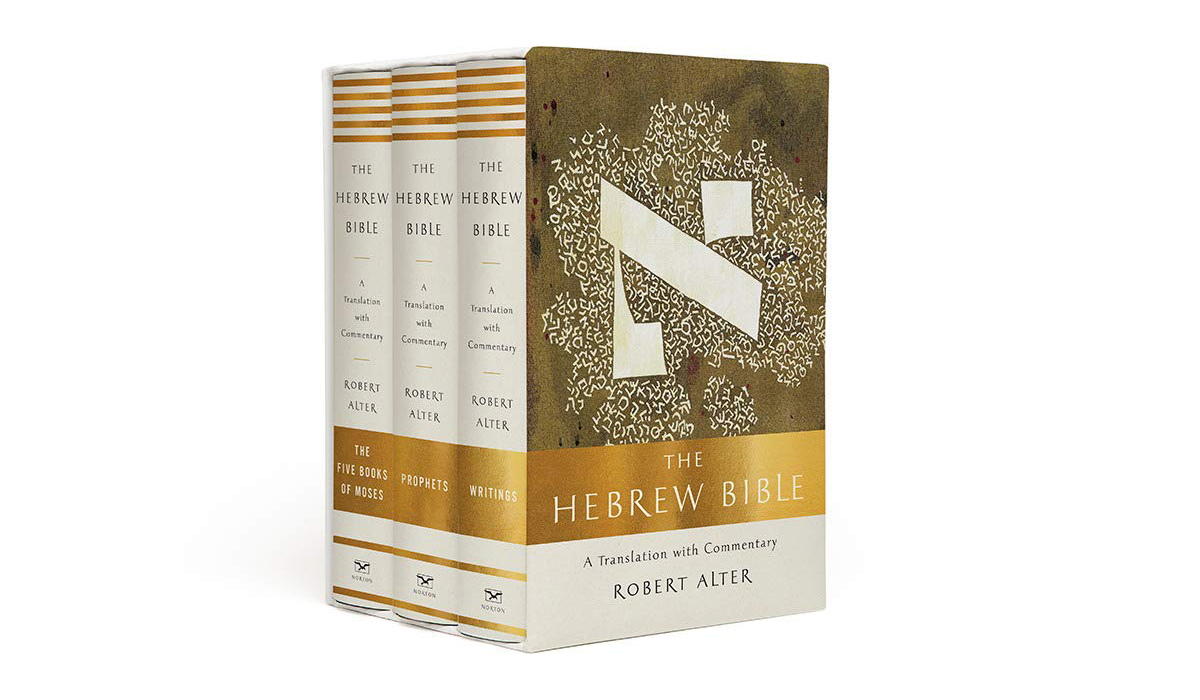Robert Alter says he was on a mission to preserve the syntax of the original Hebrew, which he says modern translators haven’t attempted to do.It took St. Jerome about 23 years to translate the Bible into Latin, giving us the Vulgate edition. Martin Luther spent the better part of his adult life rendering the Bible into German and perfecting the translation. It took 47 members of the Anglican Church to produce the much-loved King James Version in 1611.
There have been countless translations of the Bible over the centuries, but these days, a translation done by just one person is unheard of. Almost. In 2018, Robert Alter, a scholar at the University of California at Berkeley became the first person to complete a major English-language translation of the entire Old Testament on his own.
The Jewish News of Northern California explained the uniqueness of Alter’s project, The Hebrew Bible: A Translation With Commentary. “There are two common approaches to the Bible: It’s either a sacred revelation whose existence is to be taken at face value, or a historical artifact to be dissected and contextualized,” the newspaper said. “But in Alter’s first writing on the subject in 1981, ‘The Art of Biblical Narrative,’ he proposed a third way: Analyze the Bible as an interconnected series of works of literature, using the tools of literary analysis, as he had been doing with Western novels in his career to that point. At the time, it was revolutionary. He looked at the Bible not as sacred, not as historical — but as artistic.”

Alter began the project on a lark. Berkeley News described what happened:
Alter was already 25 years into his career teaching comparative literature and Hebrew at UC Berkeley in the mid-1990s when a representative of the publishing house W.W. Norton approached him about ideas for his next book.
“He proposed I’d do a book for Norton in their Norton Critical Series,” Alter says. “He said maybe something from Kafka or maybe something from the Bible. And not watching my lips, I said, `Well, somebody could make a really neat Norton Critical Series edition on the Book of Genesis, because there are now many good materials that you could include with the text of the book.’ But the problem is that there is something wrong with all the existing translations.
“So, I said if I were to do this, I would have to do my own version,” Alter says, “my own translation.”
The new translation of Genesis turned out to be such a success that Alter wanted to try translating the story of King David. His literary agent suggested going even further, in translating the whole Hebrew Bible.
“What I’ve tried to do is to reproduce the beautifully expressive syntax of the Hebrew, which the modern translators don’t try to do at all,” he told Berkeley News.
Another way of explaining his goals in a new translation can be summed up by his own “10 commandments for Bible translators”:
1.Thou shalt not make translation an explanation of the original, for the Hebrew writer abhorreth all explanation.
2. Thou shalt not mangle the eloquent syntax of the original by seeking to modernize it.
3. Though shalt not shamefully mingle linguistic registers.
4. Thou shalt not multiply for thyself synonyms where the Hebrew wisely and pointedly uses repeated terms.
5. Thou shalt not replace the expressive simplicity of the Hebrew prose with purportedly elegant language.
6. Thou shalt not betray the fine compactness of biblical poetry.
7. Thou shalt not make the Bible sound as though it were written just yesterday, for this, too, is an abomination.
8. Thou shalt diligently seek English counterparts for the word-play and sound-play of the Hebrew.
9. Thou shalt show to readers the liveliness and subtlety of the dialogues.
10. Thou shalt continually set before thee the precision and purposefulness of the word-choices in Hebrew.
The result of this “gives a real energy to the stories of the Bible,” in the opinion of Msgr. Richard Antall, author of The Wedding, (Lambing Press, 2019), who wrote an appreciation of Alter’s work in Angelus. “His literary point of view is especially insightful with the narratives of Genesis,” Antall wrote. “His commentary is not at all theologically sufficient for us who read the Old Testament with the perspective and wisdom of the New, but his appreciation of the literary merits and dynamics of the Hebrew Bible often illuminates.”
Said Antall: “It is a mystery how in the Bible God inspired some writers to tell stories to move us. Reading those stories, savoring their details, meditating on them, can move us to be better disciples. Exposure to new translations, including and especially Alter’s unique achievement, should make us more grateful for the immense treasure we have.”








